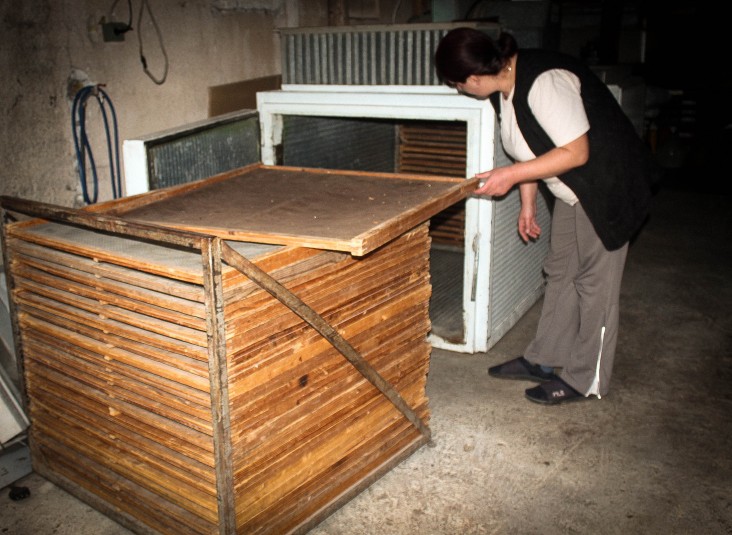Speeches Shim

Rising at the crack of dawn, getting to bed late at night, and in the hours in between, struggling to protect the only thing that fed her family and paid the bills—that is what Vesna Budnjar’s days used to look like.
A mother of two, Budnjar lives in Kalinovik, a Republika Srpska town in Bosnia and Herzegovina (BiH) just 60 kilometers from Sarajevo—a town, she says, that has been long forgotten. For years now, she has been picking, drying and selling forest fruits—mushrooms and rosehips—to support herself and her family.
Budnjar used to be at the mercy of the elements. Rain and wind slowed or stopped the drying process and diminished the quality of her products. Back then, she dried the fruit on improvised dryers: meadows in the sun. With every rain, she struggled to save the fruit, to hurry the mushrooms and rosehips indoors, so all her efforts would not be in vain. She did not make much money because she could not offer or guarantee high-quality products. And sometimes she lost everything to nature.
Then she learned of an opportunity for enterprising women to get help from USAID’s Marginalized Populations Support Program, which, together with funding from Bosnian municipalities, helps women on the margins of society start and expand their own businesses. Budnjar took advantage of the chance and her potential: She applied for assistance.
USAID and Kalinovik municipality jointly provided Budnjar with funds to buy a drying chamber and become a real—and reliable—entrepreneur. The drying chamber was key: It allowed Budnjar to consistently produce more high-quality (read: sellable) products, earn an adequate income, and provide a better standard of living for her family.
The fruits of her labors are paying off as she no longer has to struggle to stay afloat. She is the proud owner of a serious, successful business. She is a woman in the forgotten town of Kalinovik who is now making it on her own.
“I still get up early and work all day, but I don’t complain because I know that my work will bear fruit. I know that what I make will be bought and that my effort is not in vain,” says Budnjar.
USAID’s Marginalized Populations Support Program is designed to help groups underrepresented in BiH society, such as women, youth, people with disabilities, Roma and the LGBTI community. Through this program, USAID has provided assistance to 700 families with children with disabilities by establishing five specialized service centers in four municipalities.
Budnjar is one of more than 200 of women in Bosnia and Herzegovina who have received support from USAID and their local municipalities to launch and grow their own businesses, providing them with livelihoods and independence, and restoring their faith in a better future.
LINKS

Comment
Make a general inquiry or suggest an improvement.